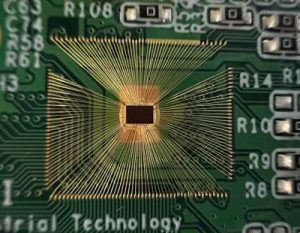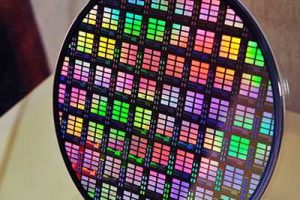ITRI and UCLA Signed Voltage Control Magnetic-MRAM Cooperation Project Aiming to Accelerate R&D of Next-Gen Memory
Aims to leverage technical expertise and innovative capacity from both parties to apply material components to memory chips for computing and storage.
This is a Press Release edited by StorageNewsletter.com on March 10, 2022 at 2:01 pmAs chip sizes continue to shrink, high-performance MRAM technology has become the mainstream.
To advance the development of next-gen MRAM, Industrial Technology Research Institute (ITRI) and University of California, Los Angeles (UCLA) have jointly signed a Voltage Control Magnetic RAM (VC-MRAM) cooperation project. With the support from Taiwan’s Department of Industrial Technology (DoIT), Ministry of Economic Affairs (MOEA) and the US Defense Advanced Research Projects Agency (DARPA), this collaboration aims to leverage the technical expertise and innovative capacity from both parties to apply material components to memory chips for computing and storage.
According to the DoIT, the MOEA has long invested in the semiconductor industry and has encouraged ITRI in the R&D of Spin-Orbit Torque (SOT) MRAM technology. Based on the achievements, ITRI and UCLA further collaborated on VC-MRAM, which has 50% higher writing speed and 75% less energy consumption than SOT-MRAM and is thereby for AIoT and automotive industry applications. The partnership is expected to strengthen the link between both parties, accelerate the R&D and industrialization of new memory technologies, and help companies adopt cutting-edge manufacturing processes at an early stage to enhance their industry competiveness.
Dr. Chih-I Wu, VP and general director, electronic and optoelectronic system research laboratories, ITRI, emphasized that the advantages of VC-MRAM such as fast reading/writing and low power consumption make it suitable for energy-saving and low-carbon emissions applications, presenting a golden opportunity for ITRI’s collaboration with UCLA.
“This is the first time that ITRI has received actual funding from DARPA in a cooperation initiative. We believe our strengths can be combined to add greater depth to the development of VC-MRAM technology,” he said.
Dr. Kang Wang, distinguished professor and Raytheon chair in electrical engineering, UCLA, remarked that ITRI, as an internationally renowned applied research institution, has unique expertise and technical capacities. It has a foundation and R&D strengths in MRAM technology, and the 2 sides should be able to leverage their respective foundations through their cooperation, yielding even more achievements.
Dr. Sudhakar Pamarti, professor and circuits and embedded systems area director, UCLA, said that ITRI has platforms and experience in the development of components and manufacturing verification. By realizing the innovative ideas of UCLA in process development, the development of material components will be promoted to related applications. He expects that by the beginning of 2023, the technology developed through this cooperation will create a new paradigm in next-gen memory.
ITRI began cultivating MRAM technology years ago, including component innovation, breakthroughs in materials, and circuit optimization, and is poised to address the demands for rapid processing of big data in the AI and 5G era. This is one of the examples that demonstrate ITRI’s commitment to promoting Intelligentization Enabling Technologies and fostering innovative applications. ITRI will continue to join hands with industrial, academic, and research organizations in helping industries to upgrade their technology, explore novel solutions and create new possibilities.















 Subscribe to our free daily newsletter
Subscribe to our free daily newsletter

